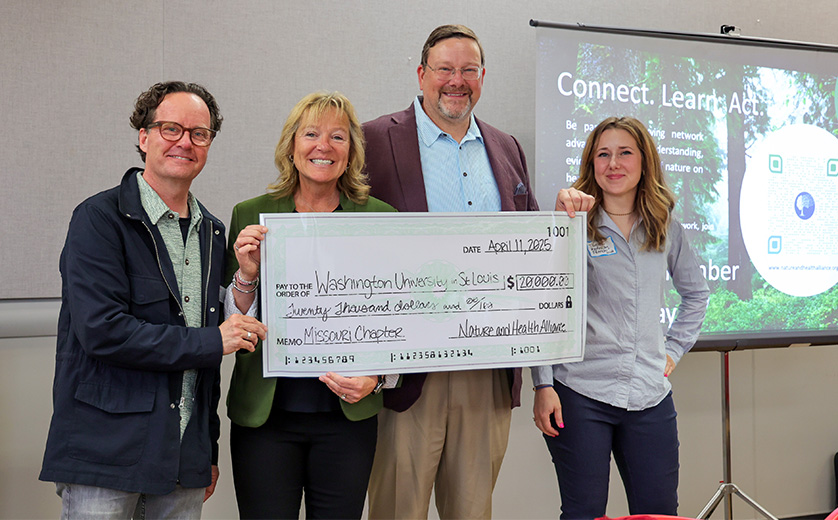Amy Eyler, a professor at WashU’s Brown School, is leading a new initiative to advance research on the health benefits of spending time in nature and address the social and environmental barriers that limit access to green spaces in underserved communities.
Eyler, along with co-principal investigator Derek Hoeferlin, professor and chair of landscape architecture at the Sam Fox School of Design & Visual Arts, have received a $50,000 IGNITE interdisciplinary grant through WashU’s Here and Next initiative. The grant helped launch the Nature and Health Alliance at WashU, a collaboration that brings together faculty, community organizations in St. Louis, and national partners to explore how exposure to nature can enhance physical and mental well-being.
“Our work will align with national initiatives and allow WashU to be at the forefront of this transdisciplinary field of study,” Eyler said.
Eyler and Hoeferlin first connected while serving on the university’s Faculty Senate Council and quickly recognized the overlap between their disciplines and research. According to the pair, despite this common ground, no formal research collaborations have existed between the two programs at WashU—until now.
As part of its launch, the Nature and Health Alliance at WashU held its inaugural meeting on April 11 at the Forest Park Visitor and Education Center. Faculty and partners from across schools met to develop ideas for collaborative pilot projects highlighting the connection between nature and health. The event was facilitated by Jay Maddock, a professor at Texas A&M and chair of the board for the National Nature and Health Alliance. Because Eyler and Hoeferlin set the stage for this work at WashU, they received additional funding from the REI Cooperative Action Fund to continue to develop partnerships at WashU and throughout the state of Missouri. During the April 11 event, Maddock on behalf of REI and the National Nature and Health Alliance presented Eyler and Hoeferlin with a symbolic oversized check for an additional $20,000 to advance this work.
“This is a chance to create systemic change,” Eyler said. “By understanding how nature supports health and ensuring that all communities can access it, we can reduce health disparities and promote well-being for generations to come.”
As the initiative moves forward, the team plans to launch three transdisciplinary faculty-led pilot projects by the end of the IGNITE grant period. They also plan to sustain and expand the collaborative beyond the initial funding.
